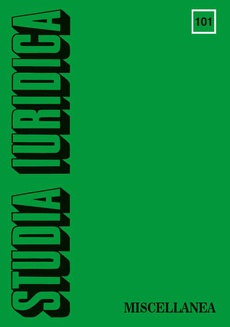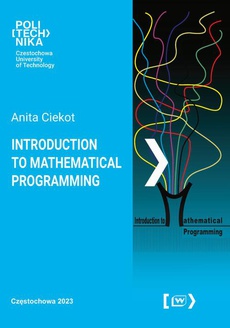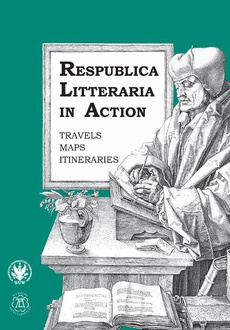POLECAMY
Elites of Post-Transformation
The Cases of Central and Eastern European Countries
Redakcja:
Wydawca:
Format:
ibuk
The systemic transformation in Central and Eastern Europe brought about the emergence of consensual elites that ultimately favoured a consolidated democracy. Today, however, some countries are experiencing democratic backsliding, with the elites fragmented or even divided. The book presents several case studies of how elites across the region have been changing. They can be instrumental in both democratization and democratic backsliding. Illiberal elites claim to represent the will of the people, which in their view is true democracy. To understand the current state of democracy, it is necessary to examine the role of the elites in this process. It is also pertinent to address the question about the origins and characteristics of the contemporary elites that threaten liberal democracy and undermine the existing consensus.
The publication is licensed under the Creative Commons Attribution-Share Alike 3.0 Poland license (CC BY 3.0 PL) (full license available at: https://creativecommons.org/licenses/by/3.0/legalcode).
******
Transformacja w Europie Środkowej i Wschodniej po 1989 roku przyczyniła się do wyłonienia konsensualnych elit, które opowiadały się za skonsolidowaną demokracją. Jednak obecnie niektóre kraje z naszego regionu doświadczają regresu demokracji ze względu na silne podziały w obrębie elit. W książce przedstawiono studia przypadków dotyczące przeobrażeń w obrębie elit w Europie Środkowo-Wschodniej. Przyjęto założenie, że elity mogą odegrać kluczową rolę zarówno w procesie wzmacniania liberalnej demokracji, jak i pojawienia się populizmu. Populistyczne elity twierdzą, że reprezentują wolę ludu, co według nich wyraża ducha prawdziwej demokracji. Zrozumienie obecnej sytuacji jest zatem niemożliwe bez uchwycenia roli elit. W tym celu warto odpowiedzieć na pytanie o genezę i charakterystykę współczesnych elit, które zagrażają liberalnej demokracji i podważają ideę konsensusu i współpracy ponad podziałami.
Publikacja na licencji Creative Commons Uznanie autorstwa 3.0 PL (CC BY 3.0 PL) (pełna treść wzorca dostępna pod adresem: http://creativecommons.org/licenses/by/3.0/pl/legalcode).
| Rok wydania | 2024 |
|---|---|
| Liczba stron | 438 |
| Kategoria | Publikacje darmowe |
| Wydawca | Uniwersytet Warszawski |
| ISBN-13 | 978-83-235-6396-9 |
| Numer wydania | 1 |
| Język publikacji | angielski |
| Informacja o sprzedawcy | ePWN sp. z o.o. |
Ciekawe propozycje
Spis treści
| Piotr Kulas, Kamil M. Wielecki | |
| Elites of Post-Transformation: From Post-Communist Elites to Populist Elites | 7 |
| PART I | |
| ELITES, DEMOCRACY, AND CIVIL SOCIETY IN CENTRAL AND EASTERN EUROPE | |
| Elena Semenova | |
| The Determinants of Parliamentary Turnover in Central and Eastern European Countries, 1990–2022 | 35 |
| Pavol Frič | |
| Elite Replacement and Civil Society | 63 |
| Jan Pakulski | |
| The Rule of Populist Nationalists in Central and Eastern Europe and Its Consequences | 97 |
| Jerzy Bartkowski | |
| Polish Political Elites—An Unfinished Project | 119 |
| Oleksandra Iwaniuk | |
| New Elites, Old Practices? Volodymyr Zelenskyy’s Rule in PreFull Scale-War Ukraine in Relation to Pierre Bourdieu’s Theory of Practices | 159 |
| Katarzyna Chawryło | |
| The Field of Power in Contemporary Russia—A Preliminary | |
| Description | 183 |
| PART II | |
| THE ELITES OF POLISH SYSTEMIC TRANSFORMATION | |
| Piotr Kulas | |
| The Post-Intelligentsia’s Long Entry into the 21st Century: Continuity and Change | 215 |
| Jan Śpiewak | |
| The Rule of Law in Authoritarian State and the Program of Universal Privatization: How the Gdańsk Liberals Saw the Agreement with the Communists on the Eve of Polish Transformation | 255 |
| Kamil Lipiński | |
| “Fixers”: Conversions and Arrangements of Capital in the | |
| Narratives of the Polish Business Elite | 283 |
| Alexandra Dunwill | |
| Elites and Their Schools in Post-Communist Poland | 321 |
| Jan Kieniewicz | |
| Vanishing Elites and Poland’s Unfinished Transformation | 365 |
| PART III | |
| DEBATE | |
| Elites of Post-Transformation: The Cases of Central and Eastern European Countries, February 23, 2022 (transcription of the debate) Participants: Konstantin Gaaze (Independent Researcher), Mikhail Minakov (Kennan Institute), Ivan Peshkov (Adam Mickiewicz University, Poznań), Anastasia Sergeeva (For Free Russia Association), Tomasz Zarycki (University of Warsaw), and | |
| Kamil M. Wielecki (University of Warsaw, moderation) | 385 |
| The Authors | 429 |
| Index of Names | 435 |

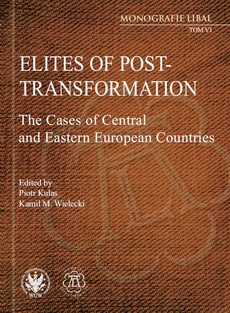









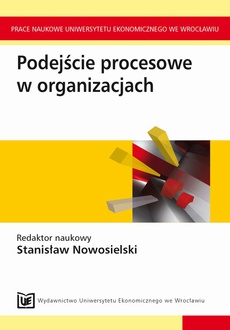




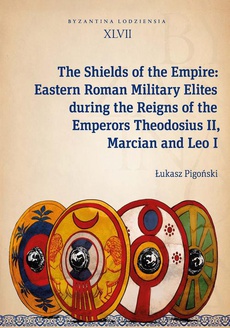
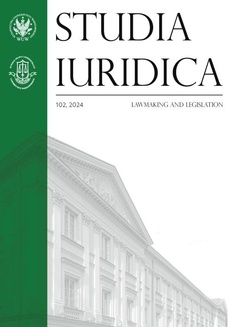
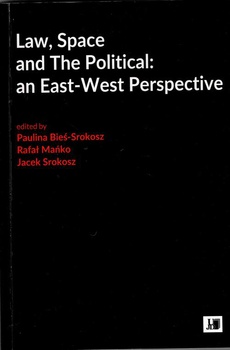
![Ekonomia 2023 [DEBIUTY STUDENCKIE]](https://o.ibuk.pl/okladki/230/d2/315479.jpg)
![Finanse 2023 [DEBIUTY STUDENCKIE]](https://o.ibuk.pl/okladki/230/a/315478.jpg)
![Zarządzanie różnorodnością w organizacji – istota, znaczenie, wyzwania 2023 [DEBIUTY STUDENCKIE]](https://o.ibuk.pl/okladki/230/d2/315477.jpg)
